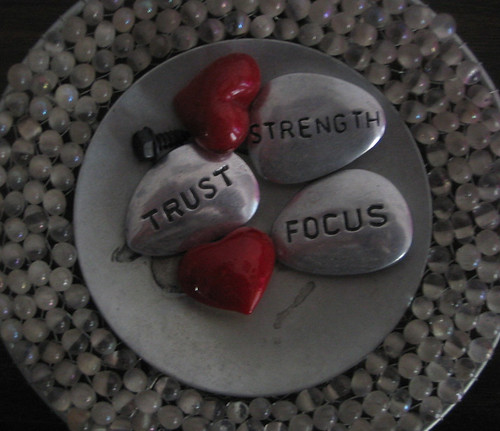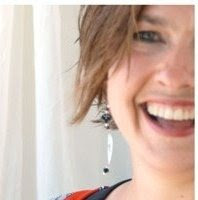We are flawed and magic
I haven’t been doing that well, lately. I’ve been triggered with loss and sorrow and rage. September does this to me a lot, and at the beginning of this September, I was in New Hampshire and Vermont, the very places where I began the break from my stepfather and his extreme control and abuse, back in 1993.
Somehow, this year, while I was driving back and forth on i-89 from Lebanon, past Hanover, to Plainfield, while the sun rose through the thick early-fall fog sweltering over the crevices in the Green Mountains to make it up for the day’s Power of Words offerings, and then back down south (through the nearly indelible dark) to my friend’s apartment for good if abbrevited conversation and sleep, I managed to drive myself right back into the past – right back into that 21 year old convinced both of the world she’d been trained into and convinced that there was nothing left to her future but utter soul-destruction if she didn’t manage to get away from the man who’d decided to turn her family into his harem; when the man she loved had given her an ultimatum (him or me, her boyfriend said, because that was what it looked like), she chose her boyfriend and was (don’t ask me how – it’s still a kind of miracle to me) able to pick up the telephone and speak into her utter terror: you can’t do this to me anymore.
It began a process of extraction. I realized, during those few days earlier this month back in that countryside, back on those roads (filled still with the echoes of all my sobbing, traced still with the fear that he would send someone to destroy me, thick still with the impossible desire that had begun to bubble in me for a new way of living, for women, for change), that I’m still extracting myself from those old horrors.
1993 is 16 years ago. Sixteen years. Sixteen years. Why am I still in this struggle? Why isn’t it done yet?
This was the sort of question I was tormenting myself with over the last month
(alongside the old sorrow, of course, trying to reach back to that 21-year old and let myself finally forgive her, forgive me, for all that she had to do to get to where she could make the break that her mother couldn’t make, her father hadn’t made, no one had stepped in to make for her. I didn’t have to crawl through a river of shit literally, but I sure did have to drag the people I loved more than myself through it)…
What good does it do to ask why you’re not over it yet? What does that question even mean? It’s not actually get-overable, this history. It’s of me now. Right?
When I’m thick in the sludge of shame and possibly-irreparable damage, depression laced with terror, sorrow that my sister and I still struggle so hard to share space, to be in the same room and really look at each other, what difference does it make why I’m not ‘over it’ yet?
And all the while, I’m trying to be functional. Functional. Show up at my day job. Truly ‘show up’ (heart and all) at the workshops, be available to hold space for us as a group of survivors writing, be open (then) to not being perfect at it. I try to show up for my husband…
And otherwise, I slip out through the thread of things. I leave conversations. I don’t return friend phone calls or emails. I leave Facebook alone, as I don’t want to be reminded of all that I’m missing, all that I’m not accomplishing, all that I’m not I’m not I’m not…
My friend asked me, when I was finally able to reach out, as the deep trance started to break and I felt my heart start to reopen again to the now: “Who can talk to you when you’re in that place?”
What? What a fantastic question, I thought, and told her. Most of the time I’m asked, Who can you talk to when you need support – but she reframed it. And I saw that there were people in my life who could meet me in the mire of shame and self-hate, who could speak kindly and gently into the midst of those old voices. And I felt a little less alone.
I’m not fixed yet. It almost feels like a confession I need to make. Now that I’m feeling better, stronger around all those fragments I still hold of me, I remember that most of us aren’t – that for so many of us, there’s no such thing. There’s learning to maneuver anew, with these scars. There’s laughing anyway. There’s learning new arms for self-care, like with the bunches of rosemary carted to every workspace, just to clear the air.
These are the voices of the depression, the old training, when I’m in the thick of it: I question who I think I am, offering writing workshops for sexual trauma survivors – and then, I think it’s unprofessional to reveal how I’m really doing. I think I can’t possibly tell my friends – they’ll think I’m pathetic, they’ll talk about me to other people, they’ll ask if I found a therapist yet.
Please note: No friend has ever responded to my sorrow this way – it’s the learning of that decade without a close friend, a pre-teen girl taken into the lair of a sociopath and trained away from the sort of socialization we’re supposed to get as teenagers, about how to have intimate relationships with people who aren’t sex partners. I only learned to relate to people through sex. It was the only option I had for intimacy outside of abuse, and I took it.
Here from this place back where my peripheral vision is wider (here, where I can see out into the music and mystery of a hawk floating over Market street, above the Flood Building, signaling to me that we’re still here, we’re still full of possibility), I know that it’s ok not to be ‘fixed.’ I know that we’re all struggling in different ways to stay engaged with this thing called humanity -- I know it’s ok to be human. Imperfect.
I want to touch that 21-year old I was, hold her hand in the impossibility of her solitude, remind her it’s ok that she’s human: that she needed an ultimatum from a lover to open the door to that previously-unimaginable action, to pick up a phone, shivering, and say, No. Enough. That it's ok that she couldn’t just choose herself: she had to choose (for) a lover. Of course, at that time, she’d (I'd) been trained into such a devaluing of self that that was the only option—and she took it. We took it. I took it. And I survived.
We do what we have to do. We are flawed and magic. And we survived. And I am sorry and I am grateful.
Labels: friendluv, healing, loss, sexual abuse, trauma aftermath

 Remember the guidelines of the AWA method writing workshops (as developed by Pat Schneider in her book
Remember the guidelines of the AWA method writing workshops (as developed by Pat Schneider in her book 
 For survivors, those of us--so many of us, in so many different ways--trained into wrongness, trained into silence, trained into the invisibility of our language: when I say that the workshops are “transformative,” I mean that we create ourselves a space in which to alter how we have come to know ourselves through words. When we tell newly-re-framed stories and we are heard... how can that not empower and open the heart?
For survivors, those of us--so many of us, in so many different ways--trained into wrongness, trained into silence, trained into the invisibility of our language: when I say that the workshops are “transformative,” I mean that we create ourselves a space in which to alter how we have come to know ourselves through words. When we tell newly-re-framed stories and we are heard... how can that not empower and open the heart?

